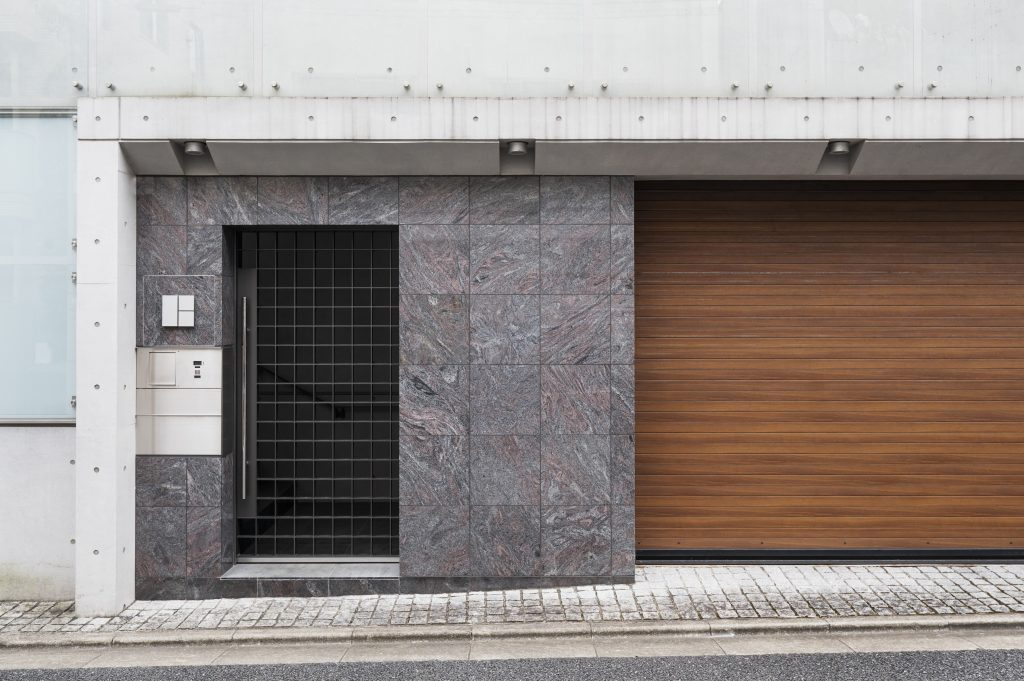Are you ready to embark on a journey to uncover the secrets of the perfect wood for your garage door? Just like selecting the right wood for a sturdy ship that sails through the unpredictable seas, choosing the ideal wood for your garage door requires careful consideration. In this article, we will explore the various types of wood used for garage doors, their unique characteristics, and the factors you need to keep in mind when making your decision. So, step aboard as we navigate through the vast ocean of wood options and discover the one that will enhance the beauty and functionality of your garage.
Types of Wood Garage Doors
Wood garage doors come in a variety of types, each offering unique features and options for customization. When it comes to customization options, wood garage doors provide endless possibilities. You can choose the color, finish, panel design, trim, and even add glass panes for a more modern look. One popular wood choice for garage doors is cedar. Cedar doors not only add beauty to your home, but they also offer several benefits. Cedar is resistant to pests and moisture, lightweight, and has soundproofing and insulation properties. However, it’s important to consider the cost of wood garage doors. While they may be more expensive compared to other materials, they are a great investment for raising curb appeal. In terms of maintenance, regular inspections for rot and wood-boring insects are necessary. Repainting or refinishing is also important to prevent peeling or fading. Treating the wood with preservatives and regular reapplication of stain are essential for maintaining the door’s longevity. Overall, wood garage doors provide a classic and customizable option for homeowners, with the added benefits of durability and insulation.
Maintenance and Care for Wood Garage Doors
To ensure the longevity and optimal performance of your wood garage doors, regular maintenance and care are essential. Wood garage door maintenance involves keeping an eye out for signs of wood rot, refinishing the doors when necessary, and taking steps to prevent insect damage. Regular inspections are also important to catch any issues early on.
One of the main concerns with wood garage doors is wood rot. This can occur due to prolonged exposure to moisture or water. Signs of wood rot include soft spots, discoloration, and a musty odor. If you notice any of these signs, it’s important to address the issue promptly to prevent further damage.
Refinishing wood doors is another important aspect of maintenance. Over time, the finish on wood doors may start to peel or fade, leaving the wood exposed to the elements. By refinishing the doors, you can protect them from moisture and UV damage and extend their lifespan.
Preventing insect damage is crucial to maintaining the integrity of wood garage doors. Wood-boring insects, such as termites and carpenter ants, can cause significant damage if left unchecked. Regular inspections can help identify any signs of infestation, allowing you to take appropriate measures to eliminate the pests.
Regular inspections and maintenance not only help prevent costly repairs but also ensure the safety and functionality of your wood garage doors. By taking care of your doors and addressing any issues promptly, you can enjoy the benefits of their natural aesthetic appeal and durability for years to come.
Levels of Wood Garage Doors
Regular maintenance and care for wood garage doors is important, and understanding the different levels of wood garage doors can help you make an informed decision when choosing the right door for your needs. When it comes to wood garage doors, there are three main levels to consider: stock doors, semi-custom doors, and custom doors. Stock doors are prefabricated options that are the most affordable. They may not offer as many customization options, but they still provide durability and weather resistance. Semi-custom doors offer some choices in design, panels, and glass panes, while custom doors provide the most customization options, including color, finish, panel design, trim, glass panes, and insulation. Custom doors are the most expensive but offer the highest level of customization and personalization. The cost considerations for wood garage doors will depend on the level of customization you desire. It’s important to consider the durability factors, weather resistance, and insulation properties of the different wood garage doors to ensure you choose a door that meets your specific needs.
Styles of Wood Garage Doors
When it comes to choosing the style of your wood garage door, you have several options to consider. Wood garage door designs range from classic raised panel doors to modern and sleek contemporary styles. You can also opt for carriage doors that resemble swing doors found in old-world carriage houses. Additionally, there are custom options available, such as barn doors with cross-hatch panels and strap hinges. Different finishes, such as natural staining, painting, or varnish, can further enhance the look of your wood garage door.
Wood garage doors offer many benefits compared to doors made from other materials. They have a natural aesthetic appeal and can be customized with accents, decorative hardware, windows, and different timber types. Wood garage doors are also functional and can be customized to fit unconventional openings and uneven floors.
When choosing a wood garage door, consider the style and finish that will best match the facade of your house. Wooden garage doors can complement any house style and enhance the curb appeal of your home. Popular wood species for garage doors include Western red cedar, Douglas fir, and Mahogany.
| Style of Wood Garage Doors | Description |
|---|---|
| Raised panel wood doors | Most common style with floating panels |
| Contemporary doors | No raised or concave paneling, appear flat when closed |
| Carriage doors | Resemble swing doors in old-world carriage houses |
| Custom options | Barn doors with cross-hatch panels and strap hinges |
| Different finishes available | Natural staining, painting, varnish |
Wood garage doors are a great investment for raising curb appeal and adding value to your home.
Choosing a Wood Garage Door
Choosing the perfect wood garage door is an important decision that can greatly enhance the curb appeal and value of your home. When considering wood garage door options, there are several factors to consider. Wood garage doors offer a beautiful aesthetic appeal with a variety of finishes, designs, and textures to choose from. However, it is important to weigh the pros and cons of wood garage doors before making a decision.
One of the advantages of wood garage doors is their attractiveness and customizability. You can choose accents, decorative hardware, windows, and different timber types to match your style. Wood garage doors can also be customized to fit unconventional openings and uneven floors. However, they do require regular upkeep, such as monitoring for damages, rot, and weatherproofing. Wood garage doors are also less energy-efficient compared to steel, which may increase heating costs. Additionally, the material and customization costs can make wood garage doors more expensive than other options, as well as repair expenses.
To maintain wood garage doors, regular cleaning is necessary to remove dirt and debris. Applying a protective finish can prevent moisture damage, while inspecting and repairing any cracks or damage promptly is essential. It is also important to avoid direct exposure to sunlight and extreme weather conditions. Lubricating hinges and moving parts will ensure smooth operation.
When considering the cost of wood garage doors, it is important to note that the initial installation cost may be higher compared to other materials. However, wood garage doors offer long-term savings due to their energy efficiency and durability. Customization options may increase the overall cost, but they can also provide a potential return on investment in terms of increased home value.
Advantages of Wood Garage Doors
Enhance the aesthetic appeal and value of your home with the advantages of wood garage doors. Here are the benefits of wooden doors for your garage:
- Attractiveness: Wood garage doors offer beautiful finishes, designs, and textures, adding a touch of elegance to your home’s exterior.
- Customization options: With wood garage doors, you can choose accents, decorative hardware, windows, and different types of timber to match your personal style and the overall look of your house.
- Functional versatility: Wood garage doors can be customized to fit unconventional openings and uneven floors. They can be tailored to meet your specific requirements, ensuring a perfect fit and seamless operation.
When considering the advantages of wood garage doors, it’s important to keep cost considerations in mind. While wood garage doors may require a higher upfront investment compared to other materials, they offer long-term durability, insulation properties for energy efficiency, and the potential to increase the value of your home. Additionally, customization options and the natural beauty of wood make it a popular choice for homeowners. To maintain the beauty and longevity of your wood garage doors, regular cleaning, applying a protective finish, and prompt repairs are essential. By following these maintenance tips, you can ensure that your wood garage doors will continue to enhance the appeal of your home for years to come.
Disadvantages of Wood Garage Doors
Wood garage doors have certain disadvantages that homeowners should consider before making a decision. One of the main drawbacks is their energy efficiency. Compared to materials like steel, aluminum, fiberglass, and vinyl, wood garage doors provide less insulation, which can result in higher heating costs. Additionally, wood garage doors can be more expensive than other materials due to the cost of the wood itself and the customization options available. Homeowners should also be aware of the maintenance requirements of wood garage doors. Regular inspections for damages, rot, and weatherproofing are necessary, as well as repainting or refinishing when necessary to prevent peeling or fading. Despite these disadvantages, wood garage doors offer unique customization options, allowing homeowners to choose from a variety of finishes, designs, and textures to match their home’s style. It is important to weigh the advantages and disadvantages of wood garage doors before making a decision, considering factors such as energy efficiency, cost comparison with other materials, maintenance tips, and customization options.






